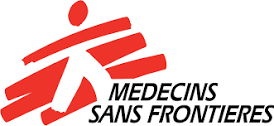Central African Republic (CAR), Batangafo: Motorbikes, Canoes and Vaccines
In Batangafo, Ouham-Fafa prefecture, Médecins Sans Frontières (MSF) collaborates with the Ministry of Health and Population (MoHP) to carry out routine and catch-up vaccination campaigns. Despite major logistical and security challenges, the teams manage to reach the most isolated children living in remote and hard-to-reach areas, ensuring their protection against diseases that are easily preventable through vaccination.
On this July morning, under a cloudy sky foreshadowing heavy rains, the MSF team in Batangafo prepares for a new mission: vaccinating children aged 0 to 5 in the village of Mala, located 25 kilometres from the district hospital where MSF has been supporting each of its department for the past 19 years. This special activity in a remote and difficult-to-access area mobilises motorbike riders, logisticians and medical staff, all equipped with protective road gear and carrying the medical supplies needed for vaccination.
After a rigorous security briefing, the team sets off and soon has to cross the Fafa River in a canoe—the only way to get the motorbikes and equipment to the other side. The convoy then takes narrow tracks through the forest until it reaches Mala. Thanks to the efforts of community educators and prior awareness-raising activities, families have already gathered with their children.

“During the vaccination awareness sessions, we were told there are several types of vaccines, including those against polio and malaria,” explains Cynthia, a mother of five.
Since November 2024, MSF has integrated the new malaria vaccine adopted by CAR—known as R21/Matrix-M into the vaccination package offered in Batangafo. This vaccine is an essential prevention tool, particularly during the rainy season and peak malaria transmission periods.
Low vaccination coverage nationwide
In the Central African Republic (CAR), vaccination coverage rates are among the lowest in Central Africa. According to World Health Organization data, in 2024 only 16% of children had completed their full vaccination schedule, while 34% had never received any vaccine.
In the Batangafo health district, MSF, in collaboration with the MoHP, regularly deploys routine and catch-up vaccination activities to protect children living in the most remote areas, often left out of the national, routine Expanded Programme on Immunization campaigns.
Between January and July 2025, 13,560 children were vaccinated, receiving doses against easily preventable childhood diseases including measles, polio, diphtheria, tetanus, and malaria.
“Our teams work closely with health authorities, following national protocols. We organise catch-up vaccination outreach along predefined routes to ensure that all villages are covered. Community mobilisation in advance is key to maximising impact,” explains Dr. Alexandre Monnan, MSF Medical Coordinator in CAR.
Vaccination activities such as those conducted by MSF in Batangafo are vital not only to protect children but also to limit outbreaks of measles, polio and diphtheria—which are making a worrying comeback.

Difficult context and underfunding
MSF’s efforts take place in a particularly tense national context. Chronic insecurity, weak health infrastructure, a shortage of qualified medical staff and the geographic isolation of many communities limit access to preventive healthcare.
The situation has worsened following the suspension of USAID funding in 2025. At the same time, several international donors have scaled back their commitments to CAR, directly impacting the system’s capacity to meet the population’s basic needs. According to the UN 2025 Humanitarian Response Plan, 2.4 million people - 37.5 per cent of the population - are extremely vulnerable in 2025, “to the extent that humanitarian assistance alone will not be enough to restore their well-being.”
In 2024, 242,500 children were vaccinated thanks to joint efforts with health authorities—an achievement that significantly contributed to preventing childhood diseases and reducing child mortality in the CAR.
MSF reaffirms its commitment to continuing these essential activities to protect the health of the most vulnerable and calls on all partners to mobilise the necessary resources to safeguard children’s lives.
Hannah Hoexter
